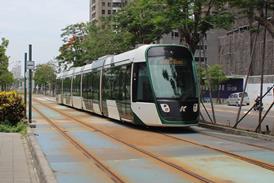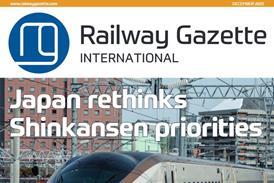Transport for London funding agreed to 2024
By Metro Report International2022-08-30T17:07:00

UK: The government and Transport for London have reached agreement on a funding settlement running until March 31 2024. This includes just under £1·2bn of base funding and a revenue support mechanism, although there is still a funding gap and TfL is required to consider pension reform, cost savings and ...
Already have an account? LOG IN
To continue…
You’ve reached your limit of content for the month
Get enhanced access to Railway Gazette news and weekly newsletters.

For almost 200 years, the Railway Gazette Group has been the leading provider of news, analysis and intelligence for the international railway industry. Our independent and authoritative content is read by operators, regulators and the supply industry in over 140 countries using a variety of tailored subscription packages.
Site powered by Webvision Cloud



